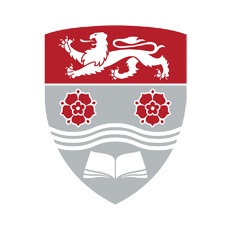BSc Economics and Mathematics (Industry) focuses on the mathematical and statistical methods employed in Economics, alongside studies in mathematics theory. Whether your goal is to use Economics in Finance or Policy, this programme is flexible enough to allow you to pursue either.As a student who is comfortable and fluent in mathematics, BSc Economics and Mathematics (Industry) provides you with the analytic skills and intellectual toolbox to help answer some of the most pressing economics questions.You will learn how to interpret data, understand (and quantify) the decisions made by individuals, organisations, and governments and evaluate economic policies.You will cover the fundamentals of Economic theory and practice, and as your degree progresses and you discover more about both the subject and about yourself, you have the opportunity to flex this programme in ways that speak to your changing interests and strengths. This might lead you to choose modules in:
Amongst many other specialisations. This leads to a degree unique to you, where you have played a major part in building the degree you want.Alongside your Economics studies, you will study the principles, methods and concepts of Mathematics. Modules cover a wide range of topics from calculus, probability and statistics to logic, proofs and theorems.This programme uses your mathematical skills and knowledge to explore the core principles of macro- and micro-economics and game theory amongst other areas of the discipline.Your third year is spent in industry. You’ll be supported in securing a placement, with past students joining companies such as IBM, Lloyds Bank, Microsoft, PwC and the Bank of England. Roles on offer range from project management and logistics to investment, business development and risk. Most placements are in the UK but there are some options overseas.What separates Lancaster from the crowd is the flexible nature of our Economics degree programmes. In your final year, you can choose a large number of your modules, focussing on your areas of interest to build a degree unique to you.You do not need an A level in Economics to enrol in this course.The University will use all reasonable effort to support you to find a suitable placement for your studies. While a placement role may not be available in a field or organisation that is directly related to your academic studies or career aspirations, all placement roles offer valuable experience of working at a graduate level and gaining a range of professional skills.If you are unsuccessful in securing a suitable placement for your third year, you will be able to transfer to the equivalent non-placement degree scheme and would continue with your studies at Lancaster, finishing your degree after your third year. The University offers a range of shorter placement and internship opportunities for which you would be welcome to apply.BSc Economics and Mathematics (Industry) offers a grounding in the fundamentals of Economics alongside your Mathematical knowledge. The most powerful aspect of Economics is that it teaches a way of thinking which can then be applied to a specific field. If you want to be a government economist advising on tax or social/welfare costs, you need specific knowledge and skills. The same is true for a career in finance. You need specific finance models – how much to invest here, or advise clients to invest there. But the mode of thinking is the same for both: it is the critical, disciplined way of thinking that you will get from an Economics degree at Lancaster University. Economics opens up the world because the critical and analytical thinking skills that it inculcates are applicable to whatever your passion, be they Politics, Finance, the trading floor, or working for an NGO, all use the same skills.

